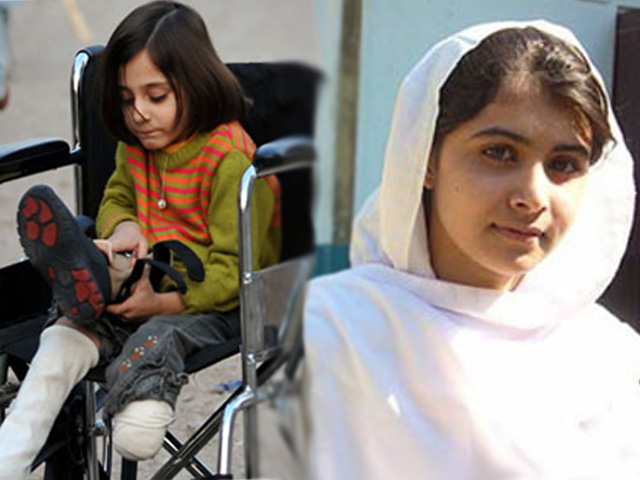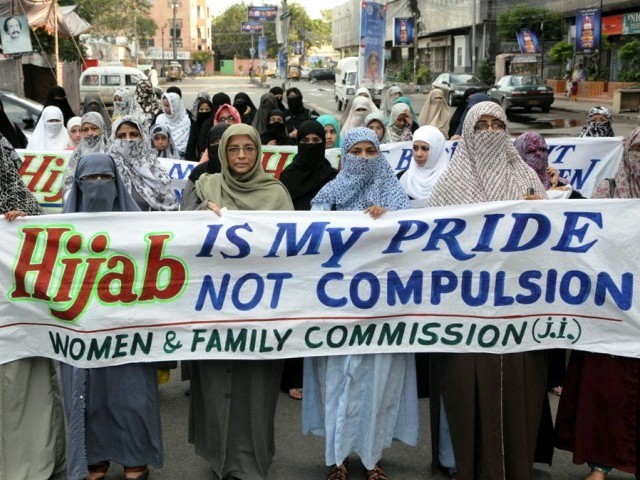
Why do the grown-ups cry during Muharram?
Do you cry on cue? Can you squeeze out the tears? What if you simply don’t feel like it?
As children, we found ways to amuse ourselves in Muharram. On the majlis farsh we planted ourselves besides the most interesting of the dowagers and matriarchs listening somberly to the majlis. Most dressed in black shalwar kameezes, some wore black chiffon saris whose blouses had grown smaller in such subtle gradations (half an inch every Muharram) over the years that, though their flesh now spilled out of them, they could not perceive the difference in the fitting. From those blouses, their flesh cascaded in soft, maternal folds and it was its shaking and quivering when they wept during the majlis that was an endless source of entertainment to us, the little children of the house.
We would pick our quarries carefully: That one slaps her thighs while she bellows exaggeratedly. She weeps soundlessly but the whole corpulent mass of her, heaving, then still, then jiggling again, is wonderfully amusing. This one now is totally boring, simply bends her head and sniffles politely, the way we’re going to cry when we grow up and finally understand what it is that they’re all going on about.
Because, just as one has the certainty in childhood that they will one day be beautiful, that they will not grow up to be like the faintly ridiculous, plain awkward or simply ugly adults they make fun of, one is also assured that the emotions they feel will be the lucid, comprehensible ones.
So I was never going to be the woman who would have to gasp and choke for air in her weeping, nor the woman who loses control and cries and shrieks during the matam. I preferred the volume of the Majlis, not at a feverish pitch, but at a suitably roused level. I wanted the emotions stirred in the audience to be precisely explained by the narration in the majlis, a mathematical, one-on-one mapping of event and emotion.
My 30-year-old self would make a ripe target for my childhood self.
“Her shoulders shake,” I can imagine my 7-year-old self saying. “And just keep shaking. Also” and this would be the truly damning part of the indictment, the reason she would find me amusing and absurd “she cries even when they’re not on the sad part of the majlis.”
I would find it something of a challenge to explain to her why I’m crying, or what at. Because the calculus of grief is hard to grasp, not just for a 7-year-old with a penchant for tidiness and logic, but for people of all ages. Happiness, well-being, these states seem amenable to calculation and management. Grief is harder to contain and control.
And this question, Why do people cry at majlises? It is posed in various ways: Why give importance to this particular battle – Karbala – over others? Why mourn something that happened so terribly long ago? Sometimes, the very act of crying is found to be disturbing, disruptive, and the question then is, Why grieve, why cry at all? Other times, people want to figure out the mechanics of it, DO you cry on cue? Can you squeeze out the tears? What if you simply don’t feel like it? And how, how can you cry over the same things over and over, every year?
There are many different answers to these questions. Most people recount patiently the events leading up to Karbala, then they try to impress their interrogator with the magnitude of the tragedy that took place, its uniqueness – the individual stories, the collective sacrifices, the body count, the cruelties. Those with a predilection for debate will launch into the complexities of political Islam. And there will of course be those who will emphasise how the incident provides us with guiding principles, distinctions between good and evil, and thus becomes an integral part of our lives.
Yes, we cry because of all of that, but apart from all these explanations, there is another explanation so simple and so bare that it is almost – but not quite – tautological: we cry because the majlis is a space for grief, a place for empathy and imagination unfettered by time and distance.
And the logical, mathematical mind might want the grief expressed to be proportionate to the event, commensurate with the story told, but the fact is that you cannot dole out expressions of sorrow in manageable, palatable, commercial chunks.
So we choke over tears, we gasp as the air becomes thinner, the world progressively less bearable, we sob with abandon. We cry for the Prophet (pbuh) and his family, but also, vitally, we cry for ourselves. We bring our own sorrows to the majlis, our private sufferings. We cry because we feel frail, because we feel no more than human. And every year, as our sorrows increase, and our blessings, we cry a little harder.
Read more by Batool here, or follow her on Twitter @batool1767




COMMENTS (53)
Beautiful post Batty!
Comments are moderated and generally will be posted if they are on-topic and not abusive.
For more information, please see our Comments FAQ